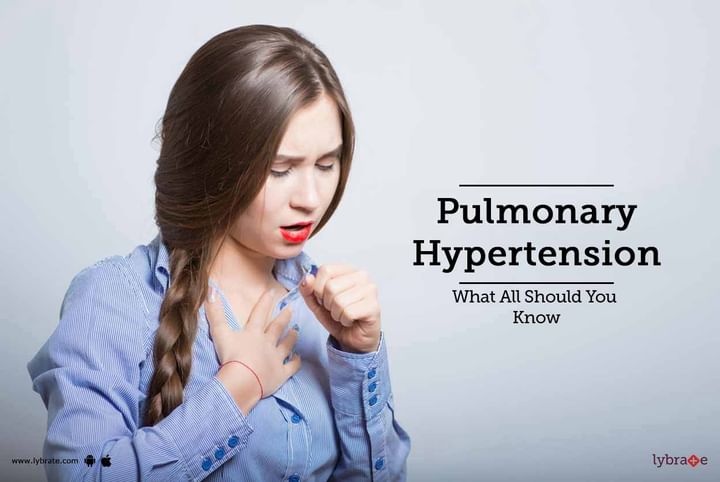Pulmonary Hypertension - What All Should You Know
Pulmonary hypertension refers to a type of high blood pressure that affects the arteries in the lungs and the heart. Some forms of pulmonary hypertension can be more dangerous than others as they can block the arteries and thus keep the blood from flowing freely through the lungs. All types of pulmonary hypertension are not curable but with treatment, the patient’s quality of life can improve and symptoms can be managed.
Pulmonary hypertension is caused by changes in the cells lining the pulmonary arteries. This can stiffen the artery walls and make them thicker than normal. Extra tissue may also form within the arteries. As this worsens, the space available for blood to flow within the arteries is reduced. This, in turn, causes high blood pressure. Pulmonary hypertension can be categorized into 4 categories on the basis of the factors triggering the condition:
- Pulmonary arterial hypertension: The exact cause of this type of pulmonary hypertension is unknown. Possible causes include congenital heart defects, gene mutations, and side effects of certain drugs.
- Pulmonary hypertension triggered by left-sided heart disease: This may be caused by left ventricle failure or diseases in the left valve such as aortic valve disease or mitral valve disease.
- Pulmonary hypertension triggered by lung disease: Lung diseases such as emphysema, pulmonary fibrosis, and sleep apnea can cause pulmonary hypertension. Exposure to high altitudes can also increase the risk of this condition.
- Pulmonary hypertension triggered by chronic blood clots: This type of pulmonary hypertension is caused by the formation of blood clots in the lungs.
Other Types of Pulmonary Hypertension-
It can also be caused by other conditions such as blood disorders, metabolic disorders, tumors and a few other disorders that affect other internal organs.
In many cases, patients may not notice any symptoms of pulmonary hypertension in its early stages. In some cases, this can last for years. Symptoms typically worsen as the disease progresses. Common symptoms associated with this condition include:
- Shortness of breath
- Tiredness
- Dizziness
- Pain in the chest
- Swelling of ankles and legs
- Blue coloring on the lips
- Heart palpitations
Treatment for pulmonary hypertension takes the form of medication or surgery. Common types of medication prescribed include Oxygen, diuretics, anticoagulants, calcium channel blockers, and blood vessel dilators. If the condition does not improve with medication, surgery may be advised. This can take the form of an open-heart surgery to create an opening in the atria to relieve the pressure inside the heart or to conduct a lung/heart-lung transplant.



+1.svg)
